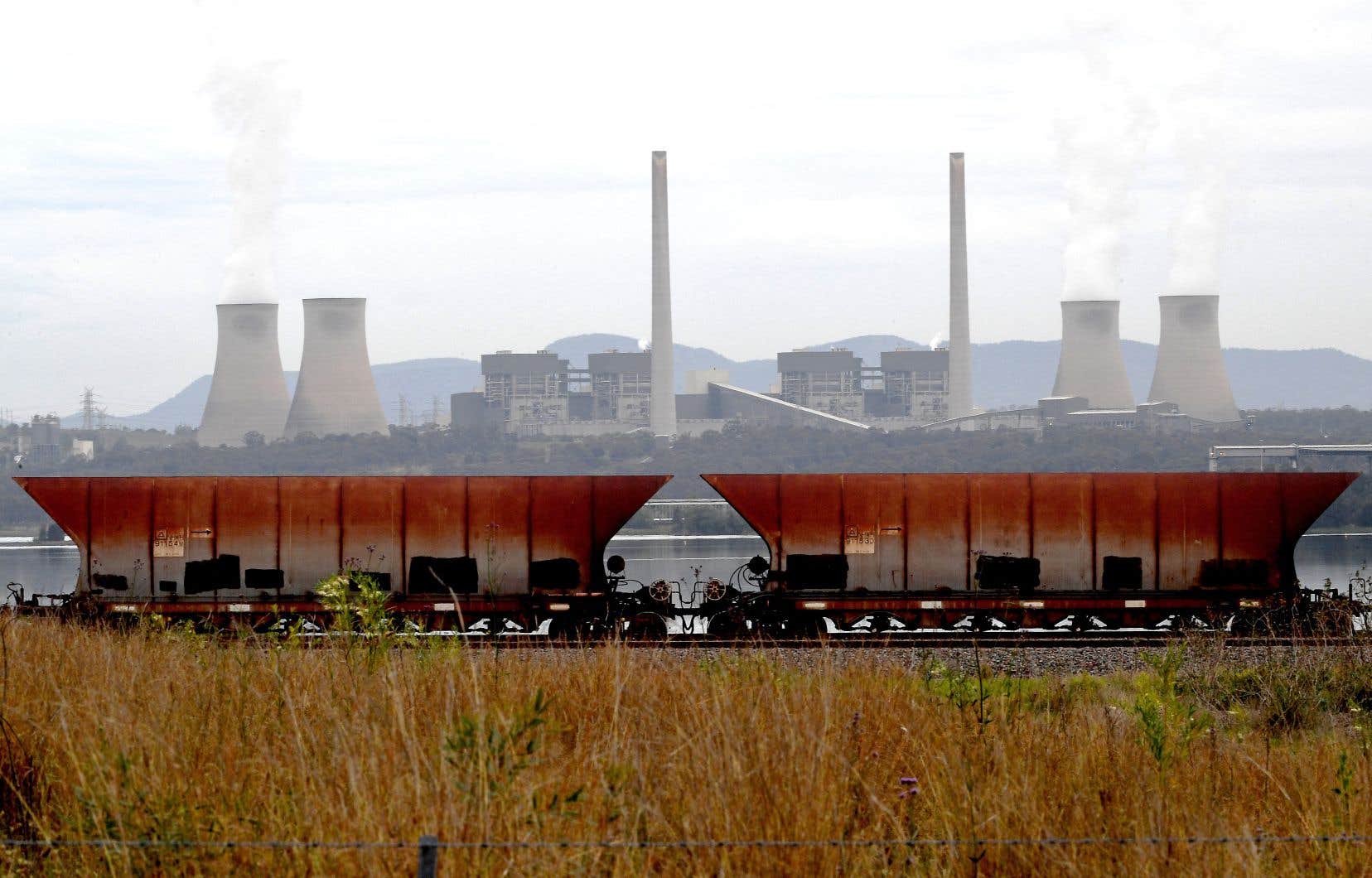Mike Cannon Brooks is a young Australian billionaire. At the end of May, he managed to bring down his country’s most polluting company – AGL Energy, Australia’s largest electricity producer – by overcoming its split plan. The company is supposed to maintain its coal-fired plants until 2045, but Cannon-Brooks expects that to continue until 2045.Expect it to close well. foray into this A form of shareholder activity.
Australia, where the sun shines in abundance, is home to a fertile land of solar energy. But this island nation in Oceania is above all a kingdom with a less radiant energy, coal. Australia even holds the award for the country that produces the most per capita greenhouse gas emissions from coal, according to a report by British think tank Ember.
For Mike Cannon-Brooks, Australia’s fourth fortune ($10.6 billion), but also a technology magnate turned climate activist, the country must break out of this dependence and turn to renewable energies. The so-called “active shareholder” – a class of activists who use their share in the capital of a company to influence its activities.
In February, the billionaire tried to buy AGL with Canadian asset manager Brookfield Asset Management to force the company to align its business with the goals of the Paris Agreement. But the takeover attempt failed.
Mr. Cannon Brooks then bought more than 11% of AGL’s shares, becoming the company’s largest shareholder. And after campaigning for other shareholders to oppose the company’s plan to separate its electricity retail operations from those of generating units, Mr. Cannon-Brooks finally got his way.
On Monday, May 30, AGL said it would not proceed with its split plan, acknowledging that it was unlikely to get enough shareholder votes to approve the deal. The CEO of the company submitted his resignation.
In a statement, AGL then said it would review its strategic direction with a focus on potential decarbonization initiatives and discuss further with Grok Ventures, the investment firm owned by Mr. Cannon-Brookes, to find a way forward. “A big victory for environmental activists”, to me Wall Street Magazine.
Climate in terms of shareholder demands
The case of AGL is far from isolated. And shareholder activism “is not a new phenomenon,” recalls Yvan Choturian, a professor at Laval University who specializes in governance and corporate social responsibility.
“The means of action are diverse. It often begins with dialogue. If that does not work, activists can announce their demands through the press. They can make decisions in the assembly. But they can also apply pressure by divestment, for example, this is what the fund does when it says He is turning his back on oil,” explains Mr. Choturian.
He explains that not all activists pursue the same goals. Some are driven by environmental and social goals, but others – think hedge funds (hedge funds) – have purely financial purposes.
However, activism regarding ESG is common, as evidenced by the annual meeting season coming to a close. This period, which runs from April to mid-June, is an important one for companies and their shareholders, who find it an opportunity to make their voices heard.
This year, shareholders of US public companies filed a record 529 decisions related to ESG standards, According to February data in the report published by As You Sow and Sustainable Investments Institute. This number represents an increase of about 20% compared to last year. Of these proposals for resolutions, 145 were directly related to issues of the environment and climate change, an increase of nearly 60% over the previous year.
The active approach does not always work. Just think of the recent case of Carl Icahn, known for inspiring Gordon Gekko in the movie Wall Street That just suffered a failure against McDonald’s. The American billionaire has criticized the company for not keeping a promise, made in 2012, to ask its suppliers to gradually stop using pregnancy cages that are too small for implantation. But the shareholders did not take action on the animal welfare concerns raised by the businessman.
However, these types of campaigns sometimes work. For example, in mid-May, Home Depot shareholders voted to approve proposals calling for an independent audit report on potential racial discrimination within the company as well as a report on its links to deforestation due to its timber supply. Sometimes these campaigns cause an uproar.
Like in June 2021, when the hawkish No. 1 engine company took over Exxon and won the oil giant by electing three new board members.
Not to everyone’s taste
Of course, this type of work has its share of detractors.
Especially on the part of conservatives who see this as an obstacle to doing business. Former US Vice President Mike Pence recently criticized investor activist campaigns aimed at forcing companies like Exxon Mobil Corp. To follow the principles of socially responsible investing, allegedly elevating the goals of the left above the interests of companies and their employees.
But there are also “disappointed”, those who do not believe that change can happen from within companies, provokes Ivan Choturian. “Obviously there are fatalistic people, who no longer believe in it, because of the green washing practiced by many companies. But I think that this does not put an end to the movement, because there are people who still believe in it, ”he believes.
Let’s see in the video

“Subtly charming problem solver. Extreme tv enthusiast. Web scholar. Evil beer expert. Music nerd. Food junkie.”


